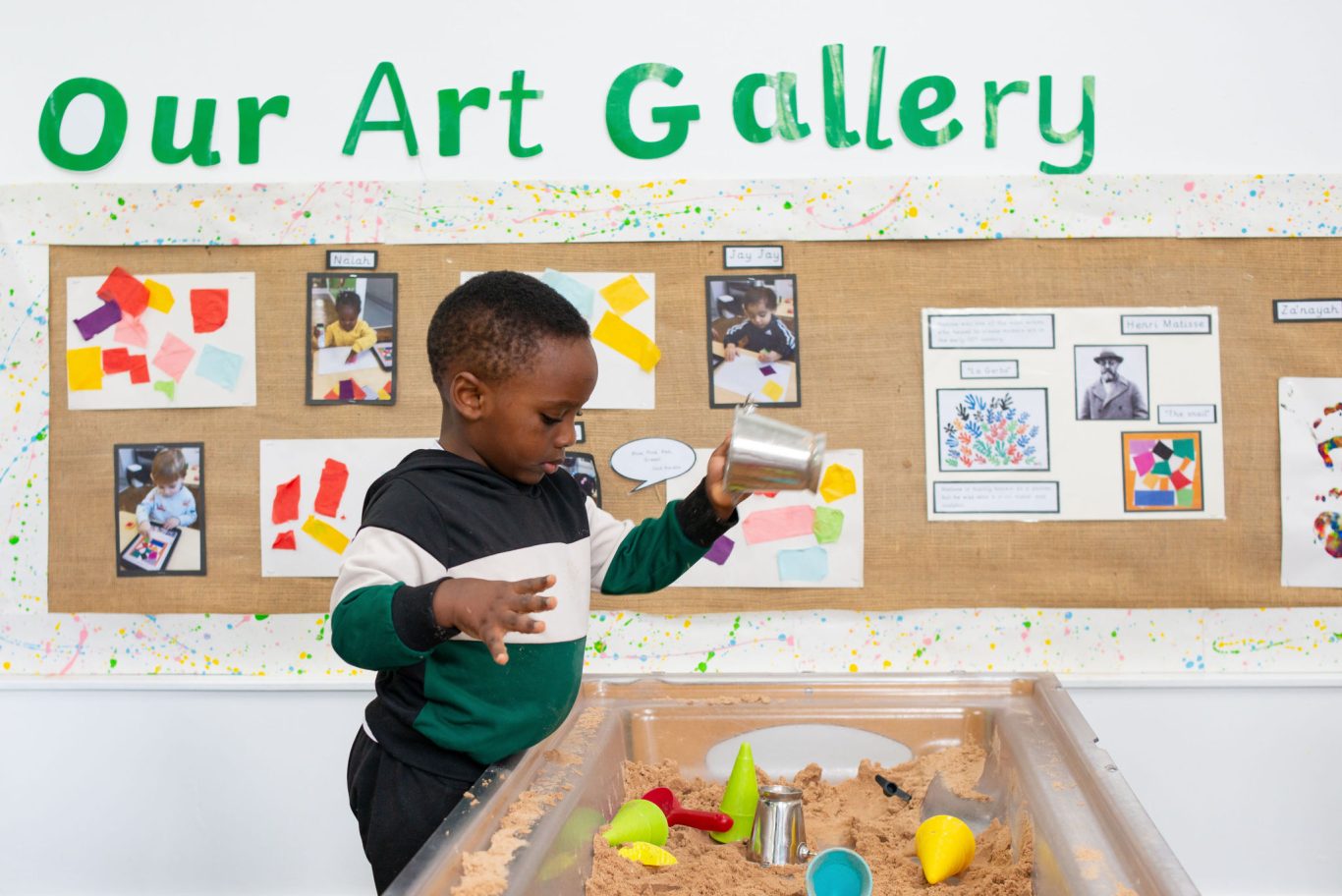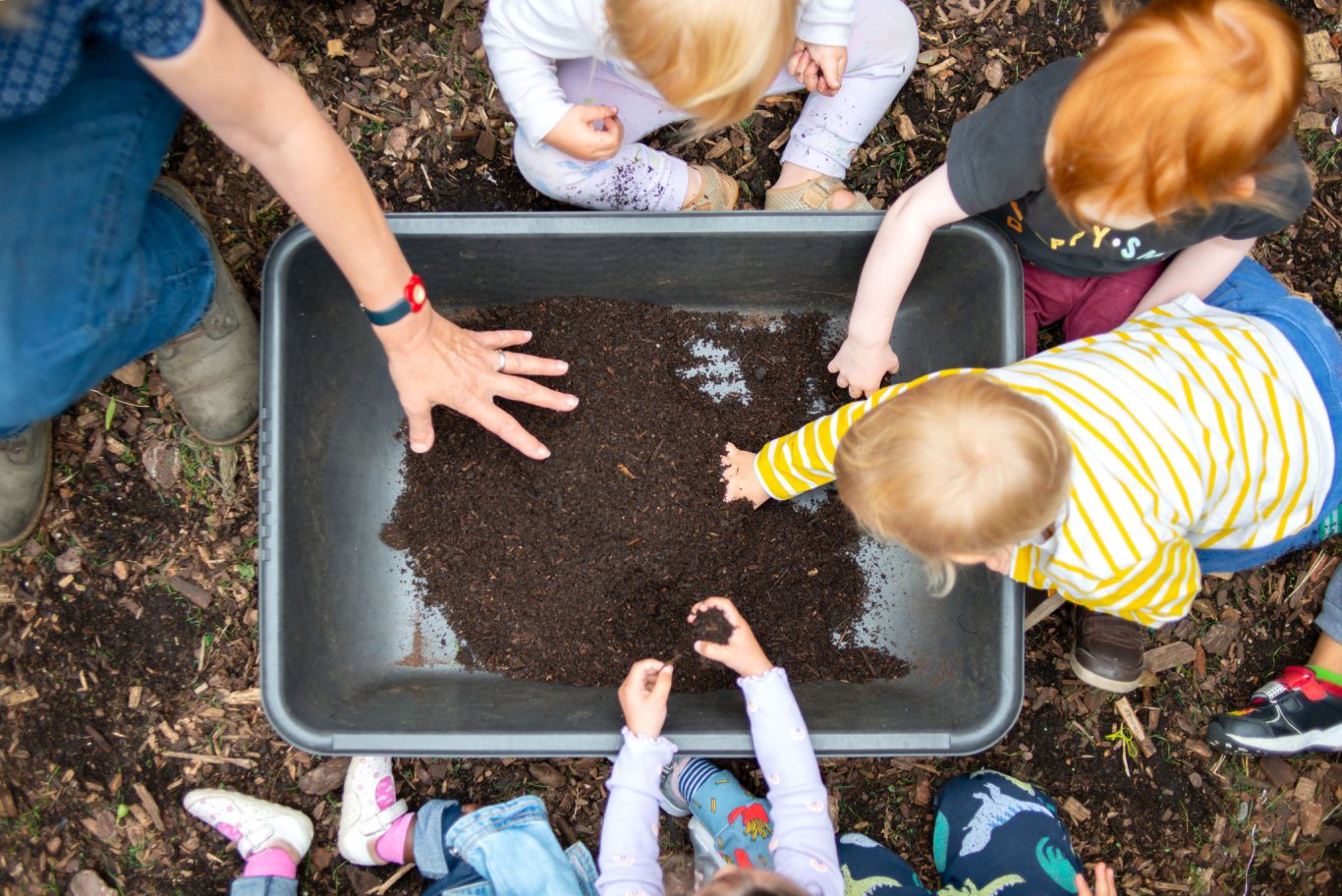We aspire for our learners to be confident, independent and inspired by the world. We believe the best way to achieve this for our learners in the EYFS (Early Years Foundation Stage) is through an engaging and challenging environment where children are supported to learn through play. We understand the power of high-quality interactions in the development of outstanding teaching and learning.
Together with the right environment and positive relationships, we aim for the highest levels of well-being and involvement. Our teaching begins with the child and as Froebel said, “We start where the learners are, not where we want them to be.” We have a research-based approach, dedicated to the continual development and improvement of our curriculum and practice. We believe the only way to achieve this vision is in collaboration with our community, as relationships underpin everything we do.
Our Principles
The EYFS applies to children from birth to the end of the Reception year based upon four principles:
- A Unique Child
- Positive Relationships
- Enabling Environments
- Learning and Development
Characteristics of Effective Learning
The Characteristics of Effective Learning support these four principles and are a key part of our Early Years Curriculum. These are grouped into three categories:
- Playing and Learning
- Active Learning
- Creating and Thinking Critically

The Seven Areas of Learning
There are seven areas of learning in the EYFS.
All areas of learning and development are important and inter-connected.
There are three prime areas which are crucial for igniting children’s curiosity and enthusiasm for learning and for helping their capacity to learn:
- Communication and Language
- Physical Development
- Personal, Social and Emotional Development
There are then four specific areas, through which the three prime areas are strengthened and applied:
- Literacy
- Mathematics
- Understanding the World
- Expressive Arts and Design

We will ensure that:
- Our EYFS curriculum is designed with themes to engage and motivate children to learn, fostering curiosity and enthusiasm for learning
- Themes for learning are underpinned by our four core drivers: London, PSE, Equalities and Eco-Action
- Learning takes place on a whole class, small group and individual level to support each child to make progress
- Children are given opportunities to develop their own ideas, thoughts and opinions through play indoors and out.
Further Information
- EYFS Statutory Framework
Follow the link to read the EYFS Statutory Framework - Tapestry Online Learning Journal
Assessment in the EYFS is carried out through informal observations of the children participating in a range of activities and is recorded through Tapestry – an online learning journal. - Reception Baseline Assessment
Upon entry to Reception, we undertake the Reception Baseline Assessment. The RBA is a short, interactive and practical assessment of your child’s literacy, communication and language and mathematics skills using familiar resources. The assessments are carried out with familiar adults in their everyday environment. - Early Years Foundation Profile
At the end of the Reception year, staff complete the EYFS Profile assessment for each child. The EYFS profile is a statutory assessment of children’s development at the end of the Early Years Foundation Stage and is made up of an assessment of the child’s outcomes in relation to the 17 early learning goals (ELGs). It is intended to provide a reliable, valid, and accurate assessment of each child’s development at the end of the EYFS.